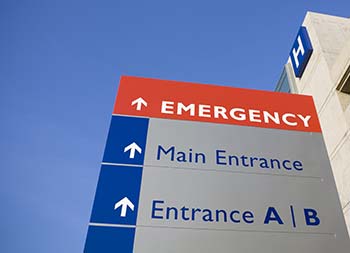Lawyers Helping Families Harmed by Diabetes Drug Side Effects in Washington

Approximately 19 million people fill prescriptions for diabetes drugs each year in the United States, including thousands of Washington residents. While there are a number of different types of diabetes drugs available from every major pharmaceutical company, this entire class of medication is particularly fraught with unexpected side effects, major complications, and recalls.
At least 17 different diabetes drugs have been found to cause life-threatening side effects -- information that was only discovered through the experiences of patients in Washington and around the country, which could often have been prevented by more thorough clinical testing and in many cases by greater concern for consumer safety on the part of pharmaceutical executives.
Attorneys handling lawsuits related to Washington diabetes drug problems believe persons and the family members of persons who have suffered from unexpected diabetes drug side effects in Washington may be eligible for significant compensation. This page provides a comprehensive overview of the serious health problems that have been linked to many different diabetes drugs.
Invokana Limb Amputation Information for Washington Residents
In 2016, the FDA announced a new Black Box warning for the risk of limb amputation from Invokana. Patients in Washington who take Invokana experience lower limb amputation (toes, feet, legs) twice as frequently as others. Researchers believe this may be due to dehydration resulting from increased urination, combined with an inactive lifestyle that is common among diabetics. These circumstances result in a lack of blood flow to the extremities.
When a risk of limb amputation is added to the drug dangers associated with Invokana, many experts suggest the potential dangers outweigh the benefits of the drug, particularly given that other drugs are effective at regulating blood sugar levels and have a better safety profile. Invokana lawsuits are currently underway as MDL 2750 in New Jersey for a wide variety of complications from the drug; the defendant is drugmaker Janssen Pharmaceuticals, a subsidiary of the global pharmaceutical giant Johnson & Johnson.
Diabetes Drug Genital Infections Information for Washington Residents
Nearly every drug in the SGLT2 inhibitor class of diabetes drug has been linked to a rare and extremely severe genital infection known as Fournier's gangrene. Called necrotizing fasciitis by medical providers, this flesh-eating genital infection occurs at a much higher rate in patients taking drugs such as Invokana, Farxiga, and Jardiance. Typically, there is one case reported to the FDA every several years in the general population; Fournier's gangrene from diabetes drugs happens much more frequently. In addition, this severe and life-threatening genital infection typically affects only men; as a result of this dangerous class of drugs, women have also suffered from this severe genital infection.
According to a 2018 FDA diabetes drug genital infection warning, medications that cause Fournier's gangrene include Invokana, Invokamet, Invokamet XR, Farxiga, Xigduo XR, Qtern, Jardiance, Glyxambi, Synjardy, Synjardy XR, Steglatro, Segluromet, and Stelujan. These drugs are marketed by Janssen (a subsidiary of Johnson & Johnson), AstraZeneca, Boehringer Ingelheim (a subsidiary of Eli Lilly), and Merck. Fournier's gangrene from diabetes drugs advances rapidly, must be excised through surgical removal of infected flesh, and may lead to life-threatening complications and death.
Victoza Pancreatic Cancer Information for Washington Residents
Victoza, the leading diabetes drug in its class, has been found to cause pancreatic cancer. Alarmingly, drugmaker Novo Nordisk was aware of the risk of Victoza pancreatic cancer long before residents of Washington and the general public first became aware of the risk. In fact, a DOJ Victoza lawsuit revealed evidence that Novo Nordisk executives actively engaged in illegal marketing practices that promoted the benefits of the drug while downplaying the risk of pancreatic cancer from Victoza. No other drug in this class has been found to increase the risk of pancreatic cancer; critics point to aggressive and unethical marketing practices as the reason Victoza reaps $2 billion in sales each year despite the dangers posed by this drug.
More than 350 persons and loved ones of persons who have developed pancreatic cancer from taking Victoza have filed Victoza Pancreatic Cancer Lawsuits through MDL 2452, multidistrict litigation currently underway in California with more than 350 cases. Plaintiffs allege they were never properly warned of the risk of pancreatic cancer from diabetes drugs, even after a 2013 FDA warning on the matter, and say they would have chosen an alternate medication were they aware of the danger of a potentially-fatal form of cancer. The DOJ Victoza lawsuit determined that Novo Nordisk marketing representatives pressured and even bribed physicians to prescribe Victoza despite the cancer connection, falsely claiming that the risk of pancreatic cancer was insignificant.

Washington Diabetes Drug Side Effects Settlements
Diabetes Drug Bladder Cancer: Residents of Washington were first warned of the risk of bladder cancer from the diabetes drug Actos in 2010 by the FDA; a second bladder cancer warning was issued in 2011, the same year the drug was officially banned in France. However, the risk was first detected in premarket testing; in other words, Takeda Pharmaceuticals was aware of the risk when Actos was first released in 1999. For more than a decade, Washington patients took this popular diabetes drug unaware of the potential to develop a potentially fatal condition.
In excess of 2 million diabetics fill prescriptions for Actos and Actoplus in 2010 alone, including many Washington residents. Research indicates that taking this particular diabetes drug for as little as a month can result in a bladder cancer diagnosis. The longer a patient takes the drug and the higher the dosage, the greater the risk for developing bladder cancer from diabetes drugs in Washington.
Actos, generic name pioglitazone, is still available in the United States and now features a bladder cancer warning on the product label. Actos was widely used at the time of this litigation; it became a popular replacement to Avandia after that drug was removed from the market in 2011. Takeda Pharmaceuticals agreed to a $2.4 billion settlement in 2015.
Diabetes Drug Ketoacidosis and Kidney Damage: Four diabetes drugs, Victoza, Farxiga, Xigduo, Invokana, have been linked to a risk for dangerous kidney conditions including lactic acidosis, ketoacidosis and acute kidney damage that poses a risk to patients in Washington. Ketoacidosis is a toxic and sometimes fatal blood acid imbalance. It occurs when the body breaks down fat instead of sugar due to the absence of insulin, leading to excess ketones in the bloodstream. Two FDA Ketoacidosis warnings were released in 2015, cautioning patients of the risk for Invokana ketoacidosis. Symptoms of ketoacidosis in Washington patients include nausea, vomiting, abdominal pain, tiredness, and trouble breathing, as well as signs of a urinary tract infection such as pain when urinating.
Drugs such as Invokana have also been linked to higher rates of kidney damage. The way these medications balance the blood-glucose level is by sending excess glucose out of the body through the urine stream. Over time, this results in damage to the kidneys, ultimately making them ineffective at filtering waste products out of the blood. Waste materials accumulate in the bloodstream, yielding a dangerous chemical imbalance in Washington patients. Kidney failure can be fatal if left untreated. Due to the risk of ketoacidosis and kidney damage from diabetes drugs, experts have questioned whether drugs such as Invokana are worth their risks.
Diabetes Drug Heart Attack and Cardiovascular Problems: In May of 2007, JAMA published research findings linking usage of the diabetes drug Avandia with heart attack, stroke, and death from cardiovascular disease. Cardiologist Steven Nissen of the Cleveland Clinic found that Avandia increased a patient's risk of heart attack by 43%. This study prompted the FDA's first diabetes drug heart attack warning. Eventually, the danger of Avandia heart attack resulted in this drug being officially removed from U.S. markets.
Avandia (generic name rosiglitazone) was first approved in 1999, and it was not until 2007 that a black box warning was added to the product's label. In 2010, the FDA released a lengthy study of the heart attack and stroke risks posed by Avandia, which at the time was the most popular diabetes drug worldwide. In a 2012 Department of Justice lawsuit, GlaxoSmithKline pleaded guilty to failing to report safety concerns over a seven-year period; the company paid a settlement of $3 billion to resolve this and other civil and criminal violations. GlaxoSmithKline has resolved more than 13,000 heart attack lawsuits. GSK's patent on the drug expired in 2012.
Let Our Diabetes Drug Attorneys for Washington Residents Help You
Our attorneys specialize in holding large corporations accountable when they've placed profits ahead of safety. Through settlements and winning verdicts, our attorneys have obtained millions for our clients. Let us help you today.
Washington Diabetes Drug Injury Lawsuits
Filing a lawsuit will allow you to hold the pharmaceutical company accountable for damage it has caused you or a loved one, while also providing real compensation for your medical expenses, suffering and loss. Contact us today for a free consultation with an attorney serving Washington.
